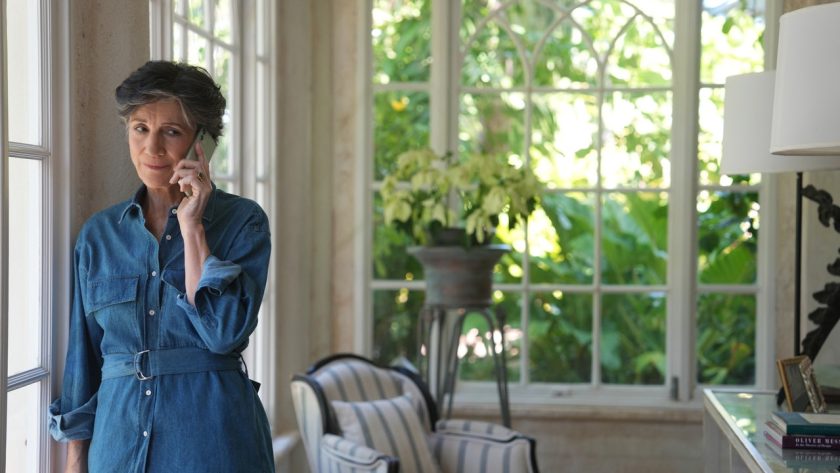“It’s to do with looks, isn’t it? I don’t look cuddly. I don’t look sweet and nice.” Harriet Walter is reflecting, in that inimitable aristocratic-sounding voice of hers, on why she has, of late, made a name as being one of the very best at playing some of the very worst mothers.
Consider the distinctly unsympathetic Nicole De Carrouges in Ridley Scott’s The Last Duel (2021). Or perhaps you’ve seen her double Emmy-nominated turn as the emotionally distant Deborah in Ted Lasso. Neither, though, are a match for Lady Caroline Collingwood, a mother so aloof she’s practically floating, who helped raise (or not, as the case may be) three of the most dysfunctional children in recent TV history: Succession’s Roy siblings.
Now, the 73-year-old is readying herself to take on one of the most tyrannical matriarchs in the canon when she arrives at London’s National Theatre next month to star in Federico García Lorca’s 1936 tragedy The House of Bernarda Alba. Set in the stifling Spanish heat, the all-women play opens on the funeral of Alba’s husband and the new widow’s decision to enforce a period of mourning on her daughters so strict they’re forbidden to leave their claustrophobic casa for eight years. And so they sit inside and sew and stew, growing increasingly frustrated by the promise of men, sex, and life that sits just beyond their front door.
“The patriarchy is, occasionally, very well run by matriarchs,” says Walter of the play, which, written just before the start of the Spanish Civil War and Lorca’s own violent death at the hands of Nationalists, is often read as a critique of the country’s then fascist forces. “Bernarda is sort of a lieutenant of the patriarchy. And so the house itself is a model of a society that is run on repression and fear.”
“I think, basically, fear is the root of all evil,” Walter continues. “And I think when I have to play somebody unpleasant I usually deal with what’s making them frightened. And she’s frightened of chaos, of sexuality.”
She doesn’t look fearful today, with hair the color of thunder clouds, elegant in a simple sleeveless tank dress, even on an unusually sweltering morning for Chiswick in the early autumn. We have convened close to the home Walter shares with her husband of 12 years, the American actor Guy Paul, at the universally acknowledged meeting point of the middle classes (Gail’s), from where we walk to Walter’s favored café for a couple of iced coffees. It is apparent she is nowhere near as stern nor cynical as her characters might have you believe. She has a mischievous wit, is warm, direct, generous with her thoughts and opinions. “I do look more angry than I feel,” she admits, sucking on a straw, but promises that “inside, I’m smiling”.



